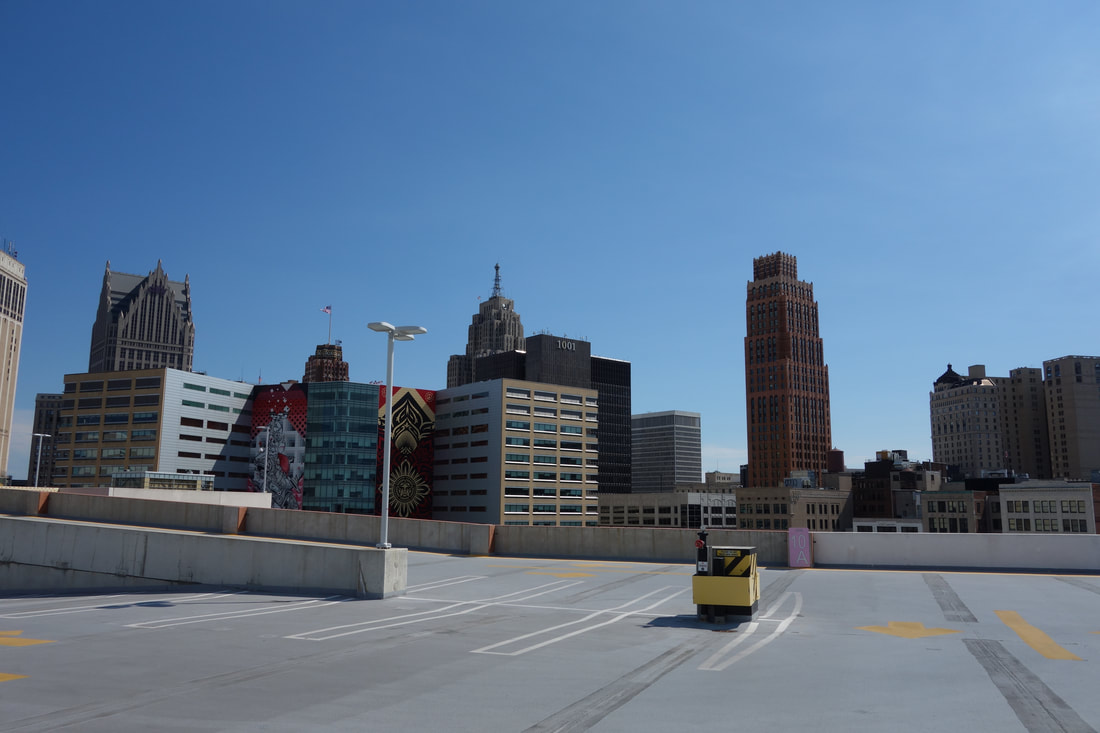Wanting a more objective and holistic view of Detroit’s economy, I chose to read “Case Study: Detroit, Michigan” written by Mike Green. The article is part of a series recounting Durham, Detroit, Cleveland and New Orleans’ endeavors in creating “inclusive local economies.” In the article, Green draws on historical and contemporary trends to dissect the present of Detroit’s economy. He raises the challenge of reconciling inclusive economic development with racial disconnection deeply entrenched in Detroit, and that much talent is wasted because they arose from disadvantaged people of color. At the same time, he recognizes that Detroit has weathered through bankruptcy faster than any other US states and that the city is devoting a massive amount of resources to promote innovation and new developments.
I believe in the impact and significance of the Detroit Innovation Council and the New Economy Initiative, both of which aim to promote Detroit’s entrepreneurial climate. Interning in one of the member organizations, Build Institute, I experience first-hand the change a social innovation incubator can bring to the community. With over 1400 people who have gone through our classes, Build Institute is consistently pouring fresh faces armed with business knowledge and new ideas into the ecosystem. With them starting their businesses and hiring labor, more jobs are offered and an increasing number of people earn more than before. Not only do we provide aspiring entrepreneurs with the necessary training, we also follow through and provide them with more resources after they graduate. The willingness of the staff to refer our graduates to relevant opportunities, like competitions and presentations, and individuals, like gatekeepers to an industry, really help promote positive change and a collaborative environment in the ecosystem.
What struck me the most in the article is that Detroit’s swiftly recovering economy poses a dilemma for potential home owners. As investors and developers cheer to the rising real estate prices, people looking to buy a house or move to Detroit see their plans disrupted and “district dreams [pushed] elsewhere.” This paradox in the rebound of Detroit’s economy is worth noting and will need to be addressed in order to continue attracting people to populate the city, thereby facilitating the economy. Especially in a city where opportunities are given disproportionally to the racial minority, it may be questionable whether Detroit’s development benefits all or simply makes those who are advantaged better off. Although Detroit is evidently resurging, we need to rethink the implications and manifestations of its developments.
I believe in the impact and significance of the Detroit Innovation Council and the New Economy Initiative, both of which aim to promote Detroit’s entrepreneurial climate. Interning in one of the member organizations, Build Institute, I experience first-hand the change a social innovation incubator can bring to the community. With over 1400 people who have gone through our classes, Build Institute is consistently pouring fresh faces armed with business knowledge and new ideas into the ecosystem. With them starting their businesses and hiring labor, more jobs are offered and an increasing number of people earn more than before. Not only do we provide aspiring entrepreneurs with the necessary training, we also follow through and provide them with more resources after they graduate. The willingness of the staff to refer our graduates to relevant opportunities, like competitions and presentations, and individuals, like gatekeepers to an industry, really help promote positive change and a collaborative environment in the ecosystem.
What struck me the most in the article is that Detroit’s swiftly recovering economy poses a dilemma for potential home owners. As investors and developers cheer to the rising real estate prices, people looking to buy a house or move to Detroit see their plans disrupted and “district dreams [pushed] elsewhere.” This paradox in the rebound of Detroit’s economy is worth noting and will need to be addressed in order to continue attracting people to populate the city, thereby facilitating the economy. Especially in a city where opportunities are given disproportionally to the racial minority, it may be questionable whether Detroit’s development benefits all or simply makes those who are advantaged better off. Although Detroit is evidently resurging, we need to rethink the implications and manifestations of its developments.

 RSS Feed
RSS Feed
